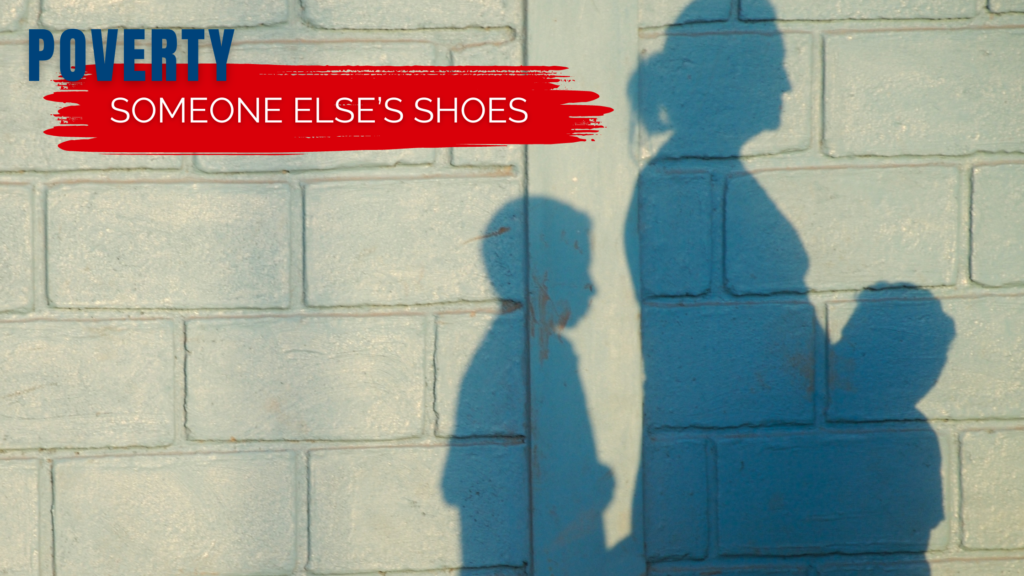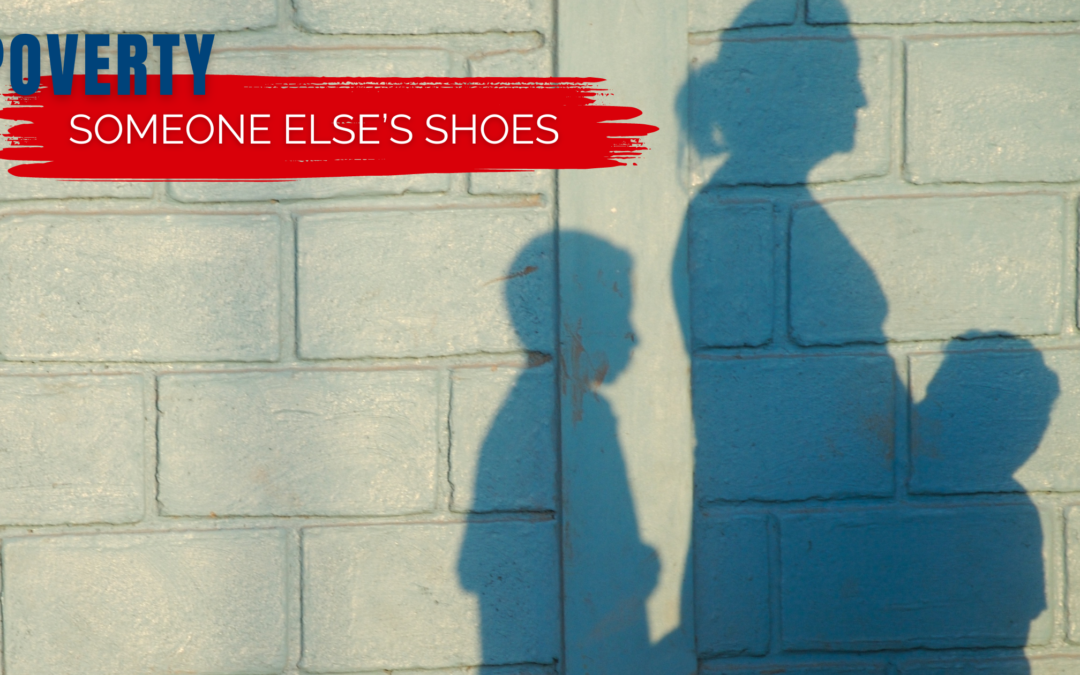
No doubt you have heard the saying “To really understand someone, you need to walk a mile in their shoes.” Sometimes that can be difficult to do, if you have not been exposed to certain environments, situations, or circumstances. This can definitely be true for our volunteer advocates. They are walking with a child through the aftermath of a traumatic experience that they, themselves, may or may not have lived.
Walking in Someone Else’s Shoes
You’re living paycheck to paycheck, trying to make ends meet, but every time you think you’re getting ahead, life throws another curveball your way. Bills pile up. Groceries seem like a luxury. You’re constantly walking on a tightrope, hoping you don’t fall into the abyss of financial ruin.
Now, imagine experiencing all of this in just a few hours… Welcome to the world of poverty simulations.
An activity like a poverty simulation can be a game changer in developing understanding and empathy. When you participate in a poverty simulation, you’re not just playing a role; you’re immersing yourself in the reality of people all around us.
Think about it – how often do we really stop to consider the challenges faced by those living in poverty? Sure, we might hear statistics or see news reports, but it’s easy to ignore an issue when it’s not directly affecting us. However, when you’re thrust into a simulated world where every decision carries weight – whether it’s paying rent or buying food – suddenly, those abstract concepts become real.
But it’s not just about gaining empathy; it’s also about understanding the systems at play. Poverty isn’t just about individuals and their own choices. It is about systemic issues that perpetuate inequality and keep people trapped in cycles of poverty. And through a simulation, you get a firsthand look at how those systems work… or don’t work. From navigating bureaucratic red tape to facing discrimination based on socioeconomic status, you start to see just how complex and interconnected our systems are. That knowledge is powerful because it equips you to advocate for change.
Walking as Advocates
As Court Appointed Special Advocates, we serve children and empower families, but how can we do that effectively if we don’t truly understand the challenges they’re facing? That’s where a poverty simulation could come in. By walking in someone else’s shoes, even for just a few hours, we gain invaluable insights that inform our work.
So, if you have the opportunity to participate in a poverty simulation, don’t hesitate. Step out of your comfort zone. Walk in someone else’s shoes. Emerge with a newfound understanding of our community – because that’s where real change begins.








